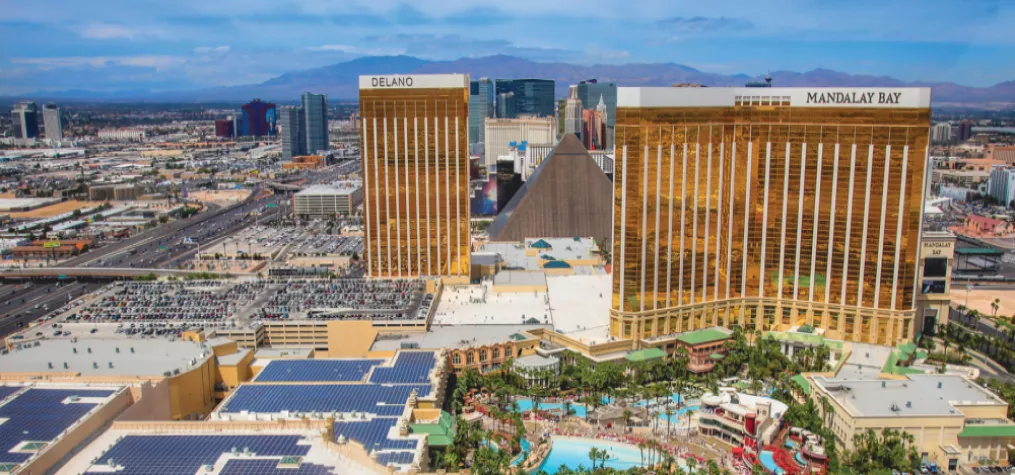Liv Rafferty

Liv is the Digital Content Executive at HeadBox. HeadBox is the UK's only online marketplace where you can instantly search, book and pay for inspiring meeting, off-site and event spaces.
Did you know that almost 50% of the plastic we produce is single use? This means it goes into landfill or worse, ends up in the ocean, where thousands of animals and ecosystems are suffering. According to the Ocean Conservancy, plastic has been found in more than 60% of all seabirds and 100% of sea turtle species. Ingesting plastic has life-threatening effects on wildlife and this plastic eventually ends up being digested by humans.
Our throw-away society is seriously damaging the environment and it’s up to individuals, industries and companies to start acting to effect change. If everyone begins to make changes, collectively things will improve.
With that in mind, the events industry has recently launched a vision to become waste free by 2020. But how do we do that? Let’s take conferences as an example. There are plenty of small things you can do to create a more sustainable event. We’ve pulled together some top tips you can follow to design a more sustainable conference.
A big factor in organising a conference is finding the perfect venue. You want to make sure your venue has everything you need so you can nail your event. We know that venues’ business practices and views on sustainability are relatively out of your hands, but you can certainly be conscious of this when deciding which venue to hire for your event.
When you are searching for your next conference venue, search for venues that are sustainable and act ethically. If this is not immediately apparent, ask questions about the venue’s recycling processes and commitment to reducing waste. If they can’t give you concrete answers then it is likely there is no formal plan in place. If it turns out that the venue isn’t sustainable, but the space is integral to creating your perfect event, there are small changes you can implement to ensure your event is as eco-friendly as possible. Ditch the single use plastic and think about how the venue can save energy. You never know, your actions might even influence the venue and push them toward a more sustainable future.
Location should also be considered as a factor. Selecting a conference venue that is centrally located means the individual guests, caterers, suppliers and speakers’ carbon footprints will be lower. This may not be easy, but considering it is an important initial step in organising a sustainable conference.
Picking a sustainable caterer is arguably as important as choosing the right environmentally conscious venue. Farming and food production involve a lot of materials and processes that have negative effects on the environment. With the whole process emitting so many greenhouse gases, picking a caterer who ethically sources their food from a local and organic source is an easy way to make your event more sustainable.
If sourcing locally isn’t a viable option for your event, there are plenty of other steps you can take to make sure your event catering is eco-friendly:
Organising a more sustainable conference can come from making small changes in your recycling and waste habits.
Traditionally, the events industry is quite old fashioned and relies on a lot of paper, whether it’s in the form of traditional marketing materials, run sheets or general organisation tools. Excessive use of paper is known to have a negative impact on the environment. Instead, these materials could be recycled from previous events, made from recycled material or recreated from available resources.
Organising a sustainable conference doesn’t have to be daunting. Small, manageable changes are a great place to start and once you have these initial sustainable changes nailed you can move on to bigger, and even more effective changes. Although it means making changes to your established processes, the overall benefits to the environment and your attendees are positive.
Becoming sustainable has absolutely undeniable positive effects on the environment. Creating a more sustainable conference many benefits; not only for the environment but also for your company. Ensuring your conferences and events are environmentally friendly can often attract more attendees as people are naturally drawn towards more ethically conscious companies.
The positive impacts on your business don't stop there. Making small changes can make a difference to your bottom line. When it comes to food waste and reusable branded products, making conscious decisions to be sustainable will make a difference to your finances. You may also increase your chance of receiving investment. Sustainability is a buzzword at the moment and if you are seen to be making genuine improvements investors, suppliers and sponsors will see this as a huge positive.
There you have it, some easy steps you can take to make your conference more sustainable and make the move towards a future that is greener.
